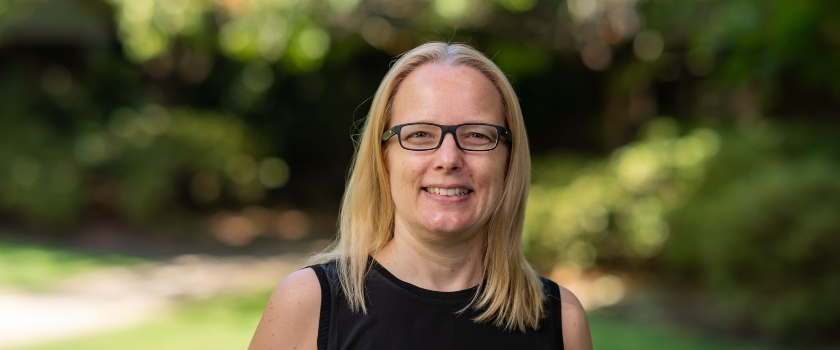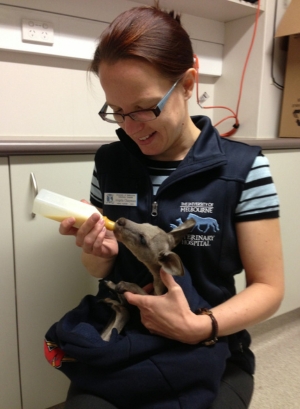-
-
- Council Members
- Role of Council Members
- Council meetings
- Council elections
- Previous election results
- Dr Louise Allum
- Dr Sam Bescoby
- Dr Andrew Clemence
- Dr Tshidi Gardiner
- Dr Reginald Godwin
- Paddy Gordon
- Dr Danielle Greenberg
- Dr Gerard Henry
- Dr Richard Hillman
- Dr Benjamin Kennedy
- Dr Tom Lonsdale
- Dr Darren Partridge
- Martin Peaty
- Alison Price
- Dr Peter Robinson
- Dr Jennifer Simmons
- Dr Sadie Spencer
- Dr Mary Thomas
- William Wilkinson
- Dr Lara Wilson
- Past-Presidents
-
-
-
-
-
- About extra-mural studies (EMS)
- EMS requirements
- Information for vet students
- Information for EMS providers
- Information for vet schools
- Temporary EMS requirements
- Practice by students - regulations
- Health and safety on EMS placements
- EMS contacts and further guidance
- Extra-mural studies fit for the future
-
-
- Code of Professional Conduct for Veterinary Surgeons
- Code of Professional Conduct for Veterinary Nurses
- Contact the Advice Team
- XL Bully dog ban
- 'Under care' - guidance
- Advice on Schedule 3
- Controlled Drugs Guidance – A to Z
- Dealing with Difficult Situations webinar recordings
- FAQs – Common medicines pitfalls
- FAQs – Routine veterinary practice and clinical veterinary research
- FAQs – Advertising of practice names
- GDPR – RCVS information and Q&As
International Member Spotlight: Angela Chapman RVN
 In this month’s International Spotlight interview, Angela Chapman RVN tells us about her life and work as a lecturer for Melbourne Polytechnic, and as a current PhD student at La Trobe University in Melbourne, Australia.
In this month’s International Spotlight interview, Angela Chapman RVN tells us about her life and work as a lecturer for Melbourne Polytechnic, and as a current PhD student at La Trobe University in Melbourne, Australia.
Can you tell us a bit about you, the organisation you work for, and where in the world you are based?
 I worked as a veterinary nurse in the UK for 10 years, where I found my passion for emergency and critical care (ECC). For the past 14 years, I've been in Australia, initially on a working holiday visa, gaining experience in ECC units across Melbourne and Perth. If you love ECC, then Australia is the place to be because you get to deal with snake bites, tick paralysis and loads of really interesting things!
I worked as a veterinary nurse in the UK for 10 years, where I found my passion for emergency and critical care (ECC). For the past 14 years, I've been in Australia, initially on a working holiday visa, gaining experience in ECC units across Melbourne and Perth. If you love ECC, then Australia is the place to be because you get to deal with snake bites, tick paralysis and loads of really interesting things!
I later became the Head Veterinary Nurse at the University of Melbourne Veterinary Hospital's Emergency and Critical Care Service, spending five years there and obtaining my Veterinary Technician Specialist (VTS) in ECC. After 15 years in clinical nursing, I was keen to try something new and transitioned into teaching. I initially considered a master’s degree in management but then landed my current job teaching in a new veterinary nursing bachelor’s degree programme from La Trobe University, based at Melbourne Polytechnic. After a year, I decided to complete my master’s alongside my teaching.
I’ve been teaching in Melbourne for eight years now, and I’m still really enjoying it.
What is your role and what area do you specialise in?
My two areas and two passions are ECC and management which has led me to where I am today.
I’m currently undertaking a PhD looking at burnout in VNs from a management perspective. While we understand that burnout exists and the impact it can have, there's still a lot to uncover regarding specific workplace causes and how management can be used to address these. My research aims to identify primary drivers of burnout in the workplace and then, through collaboration with management experts, devise effective strategies to deal with these, while bearing in mind the limitations we have in those areas. With burnout, there’s currently a lot of research being done in relation to individual coping methods and prevention strategies, but there isn’t much surrounding how this can be addressed from a management perspective.
Can you give us overview of the types of work/procedures your workplace does?
I’ve recently cut down my teaching slightly because of the PhD, but I have been involved quite heavily in organising our external placements for the course.
However, based on my background in vet nursing, my key areas are currently advanced nursing and ECC. I also teach practice management, which focuses on supporting students to learn about the leadership side of things because a lot of people in the profession work their way up to senior roles without having had any formal support or training in that area. The module also aims to give students an insight into certain areas of decision making within the clinic, and to broaden their understanding of why things are done the way they are.
I really enjoy teaching both the clinical and management side of things - it never really gets boring. Even though I teach the same material each year, it’s great to get to know new students and see the different ways in which they understand and process things.
How do you like to start your workday?
I’m mostly home based, so I tend to get my emails and communications out of the way first. Then I sit down and try to get my head into whatever topic it is that I’m teaching, marking, or researching. I have my two little assistants (my cats!) who love to ‘help’ with everything that I do. It’s very different to how I used to start my day when I was working in practice. I do try to be quite rigid in my boundaries though. I aim to be at my desk working by nine, so I can delineate work from home.
What does a typical day look like for you?
Aside from working from home, I have one (very magical!) day a week where I go onto campus and get to interact with real three-dimensional people. I’m a bit of an ambivert - I appreciate my days at home where I can really focus, but I do love going onto campus to see my colleagues and interact with the students.
The research side of things varies, but it’s a lot of number crunching and reading other papers to find out more about the area. I find that really useful, because it also overlaps with my teaching work.
What's your favourite thing about your role?
After working in clinical work and ECC for so long, it’s very easy to forget where you started. It’s the little things like teaching students to place an IV catheter or take blood for the first time - you forget how nerve wracking that can be and that there was a point in your career that you didn’t know how to do those things.
I love meeting the students, seeing how they develop and watching their confidence grow. They often don’t have much confidence to begin with, so being able to nurture them and show them that they can do things is really rewarding. It’s great to see them progress through the three years and hear positive feedback from clinics about our students and graduates.
What are the key differences between practising in the UK as a veterinary nurse and practising in Australia?
Regulation. In Australia, veterinary practice acts vary across states. Each state regulates separately, and, because of that, Western Australia is currently the only state with compulsory vet nurse registration. However, a voluntary national register was started in 2019, and there is a growing push to make it mandatory nationwide.
When I graduated in the UK in 2003, we were in the process of moving from the list to the register, so I feel like I’m going through it all again now. We’re a bit behind the UK but the drive for change is definitely there – particularly with the current workforce shortage. Currently nurses aren’t always given the opportunity to use their skills and knowledge to full capacity because of the lack of regulation.
Coming from the UK it’s easy for me to see just how much better things could be if we took that next step. I’m currently part of a group comprising representatives from each of the universities that teach vet nursing to lobby the government about how regulation would improve the workforce shortage. For example, by helping to take some of the pressure off the vets.
From the training perspective it’s pretty similar here to the UK. There are two levels of qualification – the standard level called the Certificate IV in Veterinary Nursing, which is the vocational qualification, then there are currently four universities that run bachelor’s degrees, with a fifth program currently being developed.
Did you always want to work in the veterinary sector?
Yes – absolutely! I used to volunteer at a local vet clinic after school and at the weekends. I loved it, but I knew I wanted to go to university. I didn’t want to go and train to become a nurse straight away (this was before any of the vet nursing degrees had started up). After leaving school, I completed a bachelor’s degree in Zoology at the University of Aberystwyth and then, once I graduated, I went straight into veterinary nursing.
I worked at a clinic in the UK in Bedfordshire and was there for about nine years – I was very lucky in that they were very supportive. I did my training and advanced diploma there as well as a lot of night shifts. That’s where I got the bug for ECC and started my VTS. I then moved to Australia and finished it off there.
How does your role uphold and protect animal welfare?
For me now, it’s probably about instilling that into my students. We talk a lot about ethical veterinary conflicts as well as discussing the importance of balancing animal welfare with the welfare of the clients. The moral aspect of wanting to do the best for the patient isn’t something you can always take on if it’s something the client can’t afford to do. It can be really difficult sometimes, but you can still look after the animal’s welfare even if you’re not doing what is considered the gold standard care in that situation. You’ve got to learn to work with what you’ve got.
Teaching the students to understand what we do and why we do it is also really important. As VNs, a big part of it is understanding what needs to be brought to the vet’s attention. We are the ones who keep an eye on the patients and alert the vet to certain situations where necessary.
What do you get up to outside of work?
I must admit, I had to think hard about this one! Doing a PhD and working alongside it doesn’t leave a huge amount of time. But I do love travelling. I don’t get the chance to do it very often or as often as I’d like, but I tend to travel whenever I get the opportunity, whether that be for conferences, or exploring Europe when I’m back home in the UK visiting family.
I do think it’s important to just generally relax and switch your brain off after a long week though, so I tend to do the usual - a bit of exercise, a bit of reading, and a bit of chasing the cats around!
Could you be our next International Member Spotlight? Find out more and how to get involved on our 'Could you be our next International Member Spotlight?' page.
Published on 21 May 2024